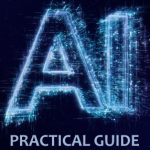Unleashing the Potential of AI in Education: Revolutionizing the Learning Experience
Introduction to AI in Education
The use of Artificial Intelligence (AI) in education has the potential to revolutionize educational systems and improve student outcomes. AI can be used to personalize education experiences, create more efficient learning tools, and offer a variety of resources for educators and students. From AI-powered learning platforms to intelligent tutoring systems, the possibilities provided by AI in education are endless – but come with some ethical considerations as well.
Understanding AI in Education
AI is a type of computing technology that has the ability to learn independently from data or interactions it receives. The applications of AI span many different fields and industries; in the field of education, AI has the potential to automate tasks such as grading and administrative work, create an interactive learning environment, and provide personalized instruction tailored to specific students’ needs. With advancements in machine learning algorithms, AI for education can also be used to analyze large datasets for insights into various aspects of educational processes.
AI-Powered Learning Platforms
AI-powered learning platforms are becoming increasingly popular in educational settings, as they offer students and educators a wide range of innovative tools and resources. These platforms leverage AI algorithms to curate personalized courses based on a student’s individual strengths and weaknesses. Examples include ALEKS by McGraw-Hill, which provides students with a personalized learning experience tailored to their individual academic needs.

AI-Assisted Teaching and Support
Virtual assistants powered by natural language processing technology are becoming increasingly popular amongst teachers for classroom management purposes such as distributing assignments, managing student queries quickly and efficiently, and providing feedback. For instance, the AI-powered virtual assistant ‘CleverBot’ has been deployed in several schools to help teachers manage their classrooms and for students to get support from a knowledgeable source.
In addition, intelligent tutoring systems (ITS) have been developed using machine learning algorithms that can provide personalized guidance and feedback for students while completing assignments or taking tests. Such systems can analyze each student’s responses on various topics providing helpful suggestions in real-time for improved understanding of concepts.
AI for Curriculum Enhancement
While traditional curriculum development requires time consuming manual effort, AI technology has enabled automated content creation that takes less time while delivering better quality results. By leveraging machine learning algorithms that analyze large datasets such as historical exam results or textbook content analytics from libraries around the world, educators can develop personalized curriculums more efficiently than ever before. Furthermore, AI-driven assessment tools such as automated essay scoring have been found to be more accurate than human evaluators at assessing student performance on written tests or essays.

Ethical Considerations and Challenges
The use of AI in the educational setting raises several ethical considerations such as privacy concerns, inequality in access to personalized instruction, and potential bias embedded within algorithms. Regarding privacy, the use of AI-powered technology opens a new range of potential data issues that must be addressed. For example, students’ data must be protected and used responsibly when leveraging AI for educational purposes.
In addition to ethical considerations, there are also challenges associated with cost-effectiveness and technological complexity when it comes to harnessing the power of AI in educational settings. For example, AI-powered learning platforms require extensive computing power to process large datasets and provide meaningful insights in real-time. Furthermore, AI technologies are still relatively new, and further research is needed to ensure that they are used responsibly and ethically. Future Possibilities and implications for AI in Education and other industries are seemingly endless.
Final Thoughts
AI technologies have the potential to revolutionize traditional education methods, personalizing learning experiences and enhancing student outcomes. In terms of the future, AI will continue to be used in a variety of ways such as intelligent tutoring systems, data-driven insights, and adaptive learning platforms. AI-assisted teaching and support, such as virtual assistants powered by NLP technology and intelligent tutoring systems, are becoming increasingly popular amongst educators. Curriculum enhancement is also benefiting from AI algorithms which allow curators to create materials faster and with more customization tailored to individual students’ needs.
As we explore emerging trends and innovations in AI for education, it is important to consider potential future scenarios that may arise due to the increased use of these technologies. Research and collaboration between stakeholders must be continued to ensure that AI is used responsibly and ethically, bringing forth revolutionary methods of enhancing both educator and student experiences alike.
Our Favorite Education AI Applications
Adaptive Learning Systems: One example of an AI-powered adaptive learning system is Knewton. It analyzes student data and behavior to create personalized learning paths for each student. By continuously assessing their strengths and weaknesses, Knewton adapts the content and difficulty level to match the individual needs, ensuring optimal learning outcomes.
Intelligent Tutoring Systems: Carnegie Learning’s Mika is an AI-driven tutoring system that provides interactive and personalized instruction in math. Using machine learning algorithms, Mika understands student responses, identifies misconceptions, and delivers customized feedback and guidance to help students master mathematical concepts.
Smart Content Creation: Quillionz is an AI-driven platform that assists in content creation for educators. By analyzing text and using natural language processing techniques, Quillionz generates quiz questions, summaries, and study materials aligned with specific learning objectives, saving teachers valuable time and enhancing the quality of instructional content.
Virtual Classrooms and Virtual Reality (VR): Classera is an AI-powered virtual classroom platform that recreates the traditional classroom experience in a virtual setting. It enables live interactions between students and teachers, offering features like live video conferencing, virtual whiteboards, and collaborative activities. Moreover, platforms like EngageVR leverage AI and VR technologies to provide immersive learning experiences, allowing students to explore virtual environments and simulations.
Automated Grading and Feedback: Gradescope is an AI-driven platform that streamlines the grading process. It uses AI algorithms to automatically grade handwritten or typed assignments, quizzes, and exams. The system provides detailed feedback and analytics to both students and instructors, improving efficiency and facilitating timely feedback.
Language Learning Applications: Duolingo, a popular language learning app, utilizes AI to personalize language learning experiences. It adapts to the learner’s proficiency level, provides interactive exercises, and uses AI-based speech recognition to assess pronunciation and offer corrective feedback.
Intelligent Learning Management Systems (LMS): Brightspace by D2L is an AI-powered LMS that supports personalized learning experiences. It leverages AI to analyze student data, identify knowledge gaps, and recommend tailored learning resources. The system also provides instructors with insights into student progress and engagement.
Data Analytics for Educational Insights: PowerSchool’s Analytics is an AI-driven platform that analyzes educational data to generate actionable insights. By examining student performance data, attendance records, and behavior patterns, educators can identify trends, predict outcomes, and implement targeted interventions to support student success.
Chatbots and Virtual Assistants: IBM Watson Assistant is an AI-powered chatbot used in educational settings. It can answer student queries, provide information about courses or campus facilities, and offer personalized guidance, ensuring students have access to support 24/7.
Predictive Analytics for Student Success: Civitas Learning’s Illume platform employs predictive analytics to identify students at risk of falling behind or dropping out. By analyzing various data points, such as academic performance, engagement, and demographics, Illume generates early warning indicators and enables proactive interventions to improve student retention and success.
These real examples showcase the practical implementation of AI in education with AI-driven applications, demonstrating how they enhance learning experiences, personalize instruction, and provide valuable insights to educators and students alike.
